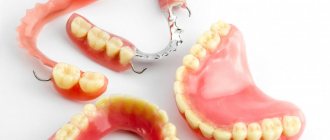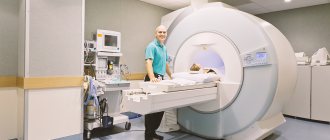Dental implantation has become a common procedure among dental patients. Everyone wants to look beautiful, especially the fair sex. But when a woman thinks about procreation, the question arises: is it worth getting implants and when is the best time to do it - when planning, during pregnancy or after the birth of the baby.
Having decided to have a child, future parents must undergo a full medical examination, including oral hygiene. If the dentist finds any diseases, they must be eliminated before pregnancy. Therefore, the dentists at the DaVinci Clinic recommend before conception:
- cure caries;
- strengthen the enamel with fluoridation;
- undergo professional oral hygiene;
- remove teeth that cannot be treated.
After removal, the dentist may recommend implantation. But, if a woman plans to get pregnant in the near future, she needs to set her priorities correctly.
Implantation in women
Male and female bodies are structured differently, so it is important to consider certain factors before undergoing surgery. Many life stages for girls are associated with serious changes in their body. These are not only hormonal imbalances, but also the psychological state, as well as the ability of the immune system to resist negative external factors.
A woman is considered the most vulnerable during menopause, during her menstrual periods, as well as when planning a pregnancy, during pregnancy and breastfeeding. Any of these conditions requires maximum professionalism and care from the doctor; in some cases, it is best to refuse all surgical interventions.
The question is not so much the ability of an organism weakened during pregnancy to undergo surgery, but rather the ability to achieve the expected result without complications. The period when the hormonal background is being rearranged is not entirely favorable for the introduction of foreign objects into the tissues of the oral cavity; the risk of rejection will be high. In addition, it is recommended to think about the well-being of the baby, because a variety of medications are used during treatment.
Lactation
The period of breastfeeding is also a contraindication for implantation, as well as during pregnancy, a woman is prohibited from taking medications. It should be borne in mind that the lactation period is associated with the body’s weak resistance to bacteria, which can develop due to caries or gum disease. The body has not yet been rebuilt, adaptation has not occurred. The medications used can negatively affect the child’s health.
Implants can be installed if lactation has stopped and the child is bottle-fed.
To avoid the need for emergency implantation during pregnancy, it is necessary to eliminate problems in a timely manner, immediately after the discovery of caries and gum disease.
Modern dentistry uses innovative technologies to provide treatment to pregnant women. The doctor will not only eliminate problems in the oral cavity, but will also advise the expectant mother on proper care of her teeth and gums.
Currently, it is possible to use effective drugs that do not cause negative consequences, and replace the radiograph with the use of a dental visiograph.
A woman should ask her doctor about precautions for the upcoming procedures.
Planning a pregnancy
If a girl is at the planning stage of pregnancy, any thoughts about implantation should be postponed for a couple of years. It is especially important to take good care of your body before the artificial insemination procedure, since at this time the immune forces work for wear and tear. If pregnancy occurs after installation of the implant, it is worth delaying fixation of the prosthesis for at least 5-7 months. This is quite enough for the complete engraftment of the titanium pin.
When implanting with delayed loading, it is also important to wait for the implant to heal. But here, too, there are some nuances: to install a permanent crown, you will again need to make a tissue incision and use painkillers, which is extremely undesirable for pregnant women. Experts strongly recommend postponing prosthetics for several months.
If it is possible to predict the conception of a child, then it is best to first complete the begun procedure for restoring the dentition. In most cases, installation of an implant, its healing and loading with a permanent prosthesis does not take more than 6-7 months.
Peculiarities
When screwing in the structure, surgical intervention is required. The procedure is as follows:
- conducting a preliminary examination, radiography;
- injection of anesthetic for pain relief (local anesthesia is used);
- tissue preparation, making an incision on the gum and periosteum;
- drilling a bed into the bone to install the structure;
- screwing the implant into the prepared hole;
- suturing soft tissues.
But all these actions during pregnancy can pose a serious threat to the unborn child. Therefore, many doctors recommend postponing the procedure until after childbirth.
Possible complications
Since X-rays cannot be taken during pregnancy, and this is a prerequisite before implantation begins, the operation will have to be delayed. Of course, there is no exact data on the dangers of such radiation on a developing fetus, but there is no point in taking unnecessary risks. In addition, an X-ray examination will need to be done not just once, but several times: before, during and after implant engraftment.
It is believed that it is possible to treat teeth for pregnant women, but only in the last trimester, when the harm to the baby will be minimal. But the procedure of osteoplasty, tooth extraction and pin installation is not worth doing due to the traumatic nature of the operation and the long recovery period.
Another undesirable moment for a pregnant woman is a stressful situation. Any excitement can negatively affect the child's condition. Many women note that during pregnancy the pain threshold decreases. Therefore, they become more sensitive, and since taking strong painkillers and antibiotics at this time is prohibited for the body, this will be double stress. A lack of calcium in a pregnant woman's body can lead to implant rejection.
previous post
Contraindications for dental implantation, list of diseases
next entry
Dental implantation during pregnancy – what you can do
When it comes to dental implantation and pregnancy planning, you have to choose one thing. And if the expectant mother has learned about her situation after the surgical stage, prosthetics can be continued, since there is no point in stopping it.
Formation of gums and installation of crowns do not require medication, so there is no need to worry about this. However, any dental procedures must be coordinated with a gynecologist, and if prohibited, the final stages of dental implantation during pregnancy must be postponed until a more favorable moment.
General overview of the operation
To understand whether dental implantation poses a danger to the mother and unborn child, you need to at least have a general idea of what dental implantation is.
An artificial tooth is a composite element consisting of 3 parts:
- The implant itself, similar in appearance to a regular threaded bolt. Implants are made from bioinert titanium alloys.
- An abutment is an intermediate part of an artificial tooth that is attached to the implant and serves as the basis for attaching the crown part.
- Crown of the tooth.
There are several technologies for installing implants. One of them looks like this:
- Examination of the oral cavity and preparation for the installation of an artificial tooth.
An X-ray of the jaw, sanitation of the jaw, selection of the type of implant, and hygienic measures are carried out. At the preparatory stage, it may become clear that the jaw bone is too narrow and needs to be augmented (bone grafting). - Implant installation . It is performed under local anesthesia. It consists of a number of separate operations - creating access to the installation site (removing the periosteum), drilling a hole for an artificial root, screwing in an implant, installing a gum former.
- Prosthetics . The former is removed, a transfer is fixed in its place, an impression is taken, an abutment is selected, the crown is fixed and adjusted.
- The abutment is attached to the implant after the last element has taken root in the bone tissue. This takes several months (3-4 for the lower jaw and 5-8 for the upper).
It is important to understand that installation of an implant - its healing (osseointegration), installation of an abutment and crown - is a long process, it can take about a year.
What functions does the temporary abutment perform and types of elements.
Come here if you are interested in what vertical alveolar ridge augmentation is.
At this address https://www.vash-dentist.ru/implantatsiya/metodiki/sozdaetsya-iskusstvennaya-desna.html we will find out who is recommended for installation of a prosthesis with an artificial gum.
To install a crown, certain operations are performed:
- Grinding the enamel;
- Depulping;
- Root canal treatment.
Safe anesthesia must be used.
To obtain an x-ray, you should use a device with a low radiation dose.
If prosthetics are performed on the front teeth, you can install ceramic crowns, which do not cause irritation, since the material does not contain metal components.
Paracetamol is used as an anti-pain drug.
In practice, prosthetics for pregnant women are performed only according to strict indications, taking into account the possible risks from the use of medications.
Postponing the installation of crowns is also not the best solution, because the absence of a tooth causes changes in the entire oral cavity. This manipulation is usually performed in the second trimester of pregnancy.
Planning a pregnancy requires certain preparations, including dental treatment. If there is a need for treatment during pregnancy, it is not recommended to postpone it for a long time, since the development of infection will negatively affect the health of the child and mother.
Contraindications
Despite the fact that pregnancy is not a disease, it requires a more scrupulous attitude. Main dental contraindications:
- Stress, pain in the 1st trimester. For this reason, the use of sedatives during forced treatment will cause less harm to the fetus than emotions and the release of adrenaline.
- X-ray examination. It is mandatory for implantation, but prohibited for pregnant women. Even the treatment of caries, cleaning and filling of canals is carried out by dentists “blindly”, based on their experience and professionalism.
- Anti-inflammatory therapy, pain relief after implantation. Most drugs are prohibited for pregnant women.
- Load on the body. The introduction of an implant, even using a seamless method, is an operation, an invasion of internal processes, and the expenditure of additional resources. In combination with global changes in the hormonal and physical background of a pregnant woman, implantation is undesirable.
What to do if pregnancy occurs before the surgical stage
Is it possible to have dental implants during an unplanned pregnancy? When pregnancy has become a pleasant surprise for you, and you have already set a date with your doctor and have gone through the preparatory period, you need to postpone the process of installing the implant until you give birth and stop breastfeeding your baby.
Why is it important? In the first trimester of pregnancy, the vital organs of the baby are formed, and the woman has a very high risk of miscarriage. These two factors should be decisive for you if you do not want problems and complications.
Content
- Is it possible to undergo implantation for pregnant women?
- Implantation planning
- Bottom line
When undergoing examination during registration, the expectant mother must visit the dentist. The sooner a pregnant woman resolves dental issues, the easier this period will pass and with less damage to her teeth in the long term. If dental problems are identified, the doctor may recommend implantation.
PROMOTION
Osstem dental implantation turnkey
18,000 rub.











